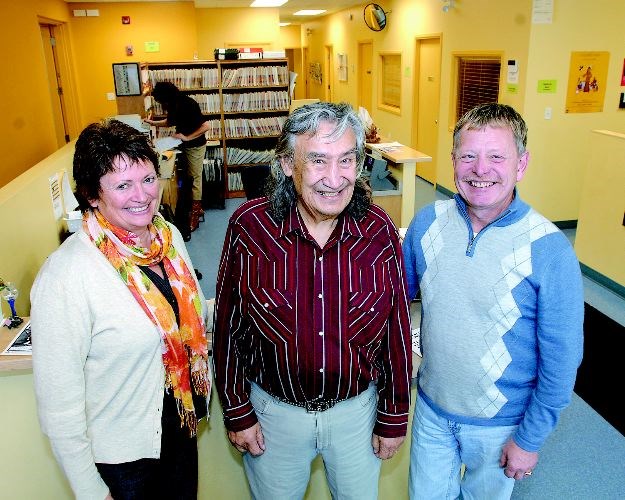A national health conference conference in Montreal will have a strong Prince George presence.
The Central Interior Native Health Society in Prince George will be highlighted as one of Canada's top innovations in primary healthcare at the Canadian Health Services Research event Nov. 1 and 2.
CINHS is a family practice clinic created 17 years ago to be a welcoming and
non-judgmental environment for urban aboriginals who don't do well in the public health system where they often feel out of place, unwelcome and sometimes told to not come back.
The clinic aims to serve homeless and aboriginal people, the latter accounting for about 80 per cent of the clinic's total patient population, which ranges from 1,000 to 1,300 at any given time.
"These patients have a lot of health issues," said Murry Krause, executive director.
"Our patient criteria is to serve aboriginals, the homeless and those close to being homeless," said Krause.
"We try to never fire a patient, but rather work with them," said Krause, noting the patients come mainly from Prince George or between the city and their own rural community.
"We're being recognized for our provision of primary health care and the idea of everybody working together as a team. Our aim is to provide quality, not quantity."
The downtown clinic is located at Fourth Avenue and George Street. It offers physicians, nurse practitioners, registered nurses, social workers, an addiction counsellor and more.
The team also does a lot of outreach work "rather than sitting in the office and waiting for people to come to us," said Krause.
The society was established in 1993 by a group of First Nations leaders in Prince George after a 1991 B.C. Royal Commission on Health underscored the stark health disparities between Aboriginal Canadians and the general population.
"We try to include culture into every aspect of our work," said Krause, explaining, a First Nation elder on the clinical team works to reconnect aboriginal people with their culture, and especially their spirituality.
The clinic is governed by a six-member aboriginal board of directors which sets policy along with the executive team and service providers.
Presenting the Prince George project will be Olive Godwin, primary health care co-ordinator, Dr. Annette Brown, research schools at UNBC and UBC, and aboriginal elder, Leonard Ward.
Godwin said the presentation will highlight three main things:
"We'll emphasize the the things that really work well among this population, our electronic medical record that can be used by the entire multidisciplinary medical team, and our weekly meetings,"
Godwin explained every Wednesday during a clinical meeting the medical team talks and makes plans specifically for those patients who have issues that need to be worked out. They also hold a team meeting for discussions and brainstorming and to keep other updated on what they are doing.
"What ever we are doing, we do it through an aboriginal lens," said Godwin.
A four-year Canadian Institutes Health Research-funded study of the clinic is underway to better understand how primary healthcare services can be provided to meet the needs of patients.
From the findings, a set of indicators will be developed to reflect the best health care practices in the context of people's lives and well being.



